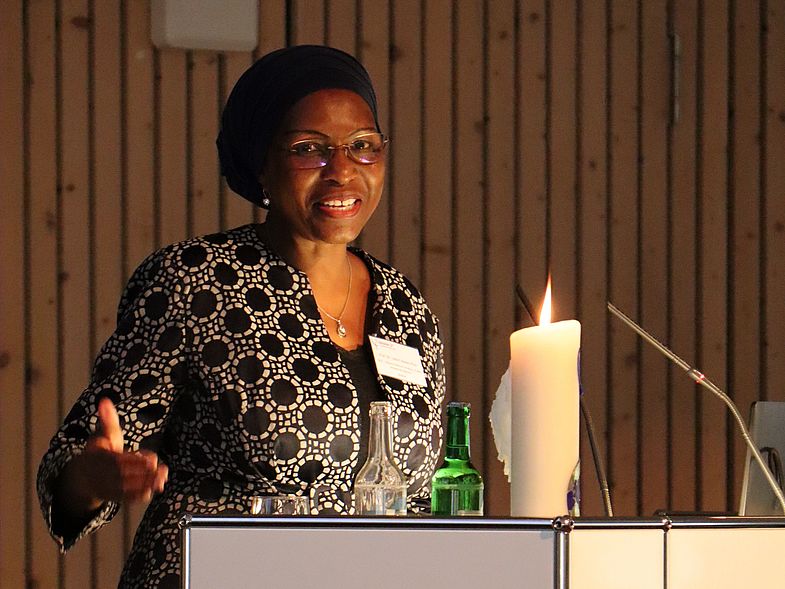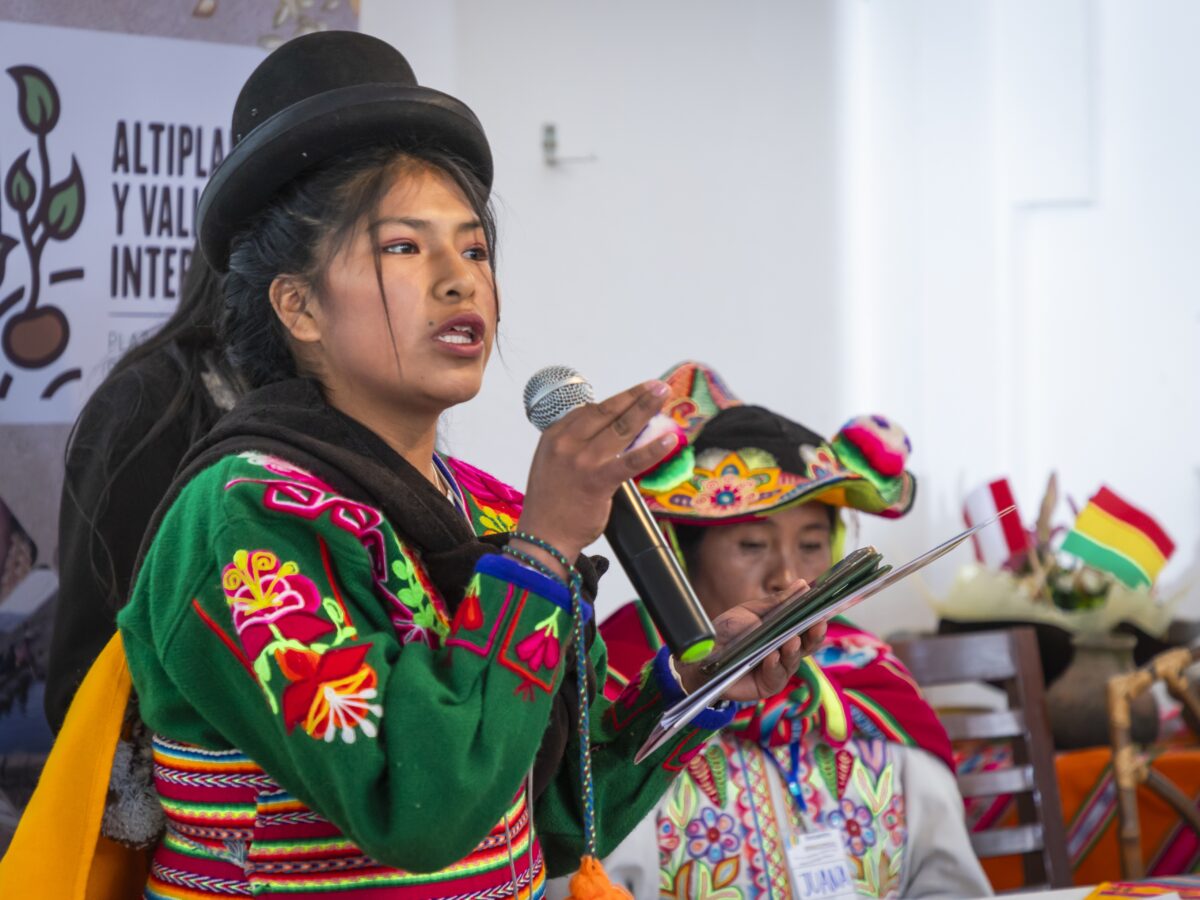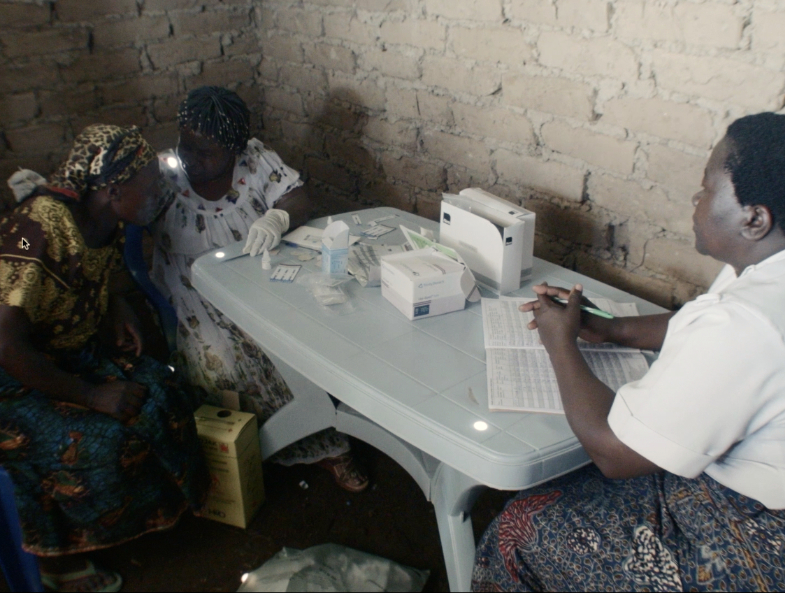The pandemic has exacerbated social contrasts worldwide, notes theology professor Isabel Apawo Phiri in her presentation on Friday afternoon. Covid-19 has led to an increase in domestic violence, and disadvantaged people in particular have been even more threatened in their existence than before.
The World Council of Churches (WCC) in particular is committed to addressing the consequences of the pandemic. Isabel Phiri explains how the WCC has refocused its work internationally to engage the global churches to address the challenges the pandemic poses to health, social situation and pastoral care. Isabel Phiri hopes that the challenge of the pandemic will awaken a willingness for real social change and engagement. The synod thanks her engaging presentation with prolonged applause.
Perspectives of women and youth
Already in the morning, the synod dealt with various aspects of vulnerability and healing. Impulses from four perspectives were introduced and dealt with, which came from the current work of Mission 21.
From Asia, Vistamika Wangka, head of the emergency shelter for women in Hong Kong, brought the perspective of women who suffer violence. Especially for women who have experienced suffering in their vulnerability, a safe place provides the crucial framework to experience healing. The emergency shelter for homeless migrant domestic workers offers them the opportunity to leave existential angst behind and begin the process of healing and empowerment by living together with fellow sufferers.
Healing and empowerment are experienced by young people who have suffered war-related violence through trauma processing; Blessing Fomuso spoke about this in her presentation with a focus on the perspective of youth. She explained that vulnerability is the prerequisite for working through trauma. The experience of and dealing with pain can be a strength.
Theology and Medicine - Perspectives on Healing
For Ruth Vindas Benavides, a Costa Rican pastor, the current state of the world gives an unvarnished view of vulnerability as human beings. In the face of such great destruction and poor living that we have committed as humanity, change is urgently needed, she said. Even in theology, she says, it is necessary to learn, with all our five senses, to get a grip on our lives again, to leave our stupidity behind and to recognize that we have made mistakes - knowledge from suffering.
In her fourth presentation, Pastor Astrid Fiehland van der Vegt from Davos also expressed the hope that pain can lead to insight. Especially in Switzerland, we are cushioned against almost everything with insurance, not only against illness and occupational disability. Astrid Fiehland explained that despite all the insurance we have to admit that in life we are not spared pain, loss, failure, illness and death, and she also saw this as an opportunity.
Enriching group discussions
In the workshop work with these keynote speeches, the delegates were also particularly engaged in the question of how we as Mission 21 can contribute to a more just world. Answers to this were: Churches must perceive people holistically, and it is also important to strengthen empathy and solidarity, because only then can vulnerability be accepted. Genuine comfort requires that the pain of the other person is seen and acknowledged. And at the political level, the vulnerability of disadvantaged population groups must be addressed so that their needs are taken into account in political decisions.
As a result, the presentations brought together many encouraging statements that will inform the work of Mission 21.
All News






